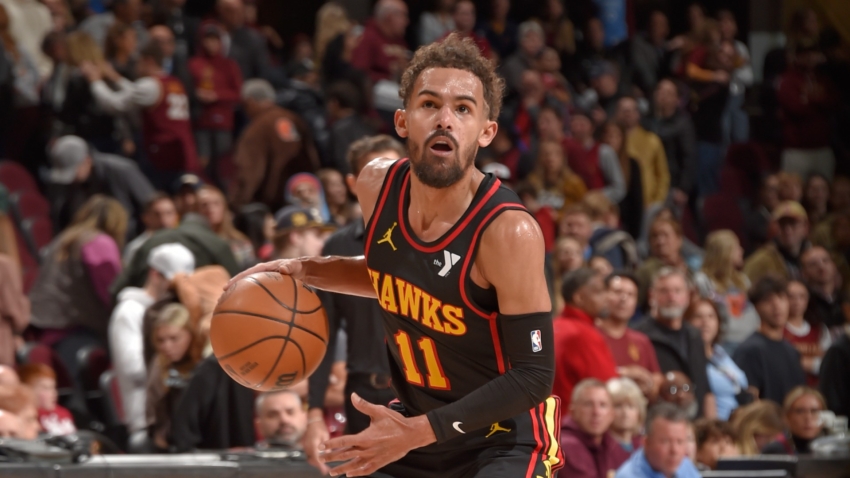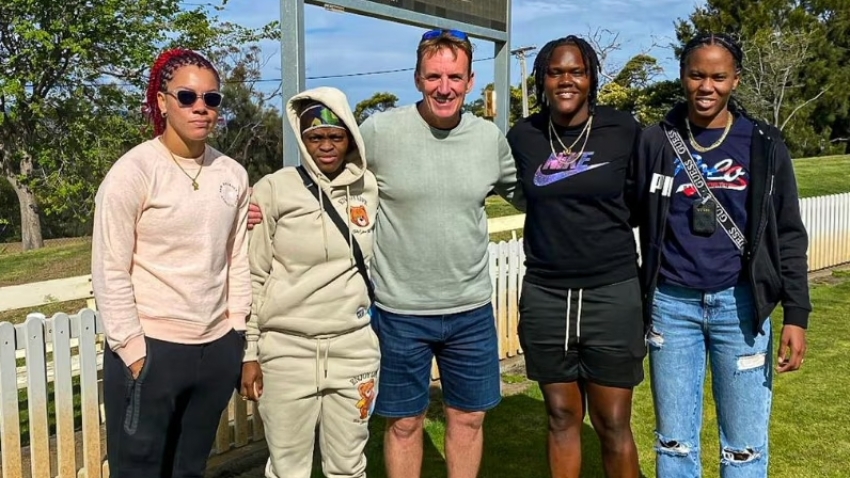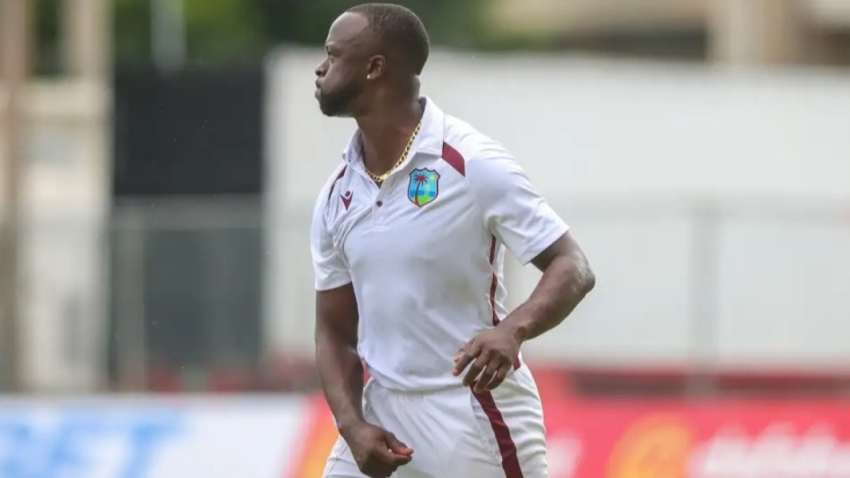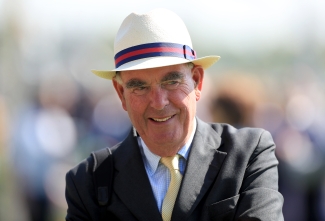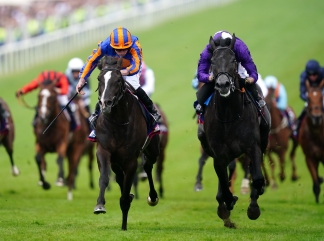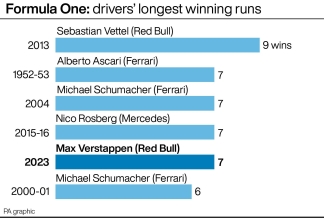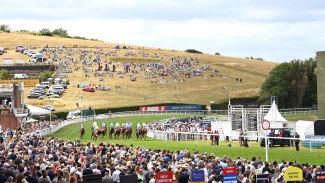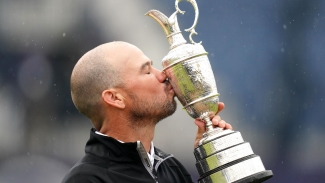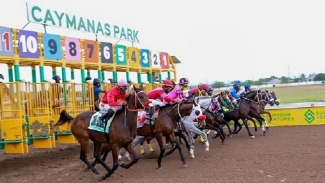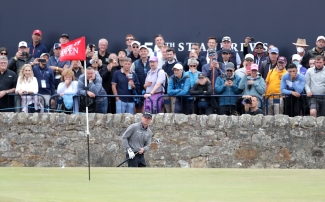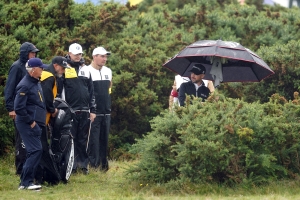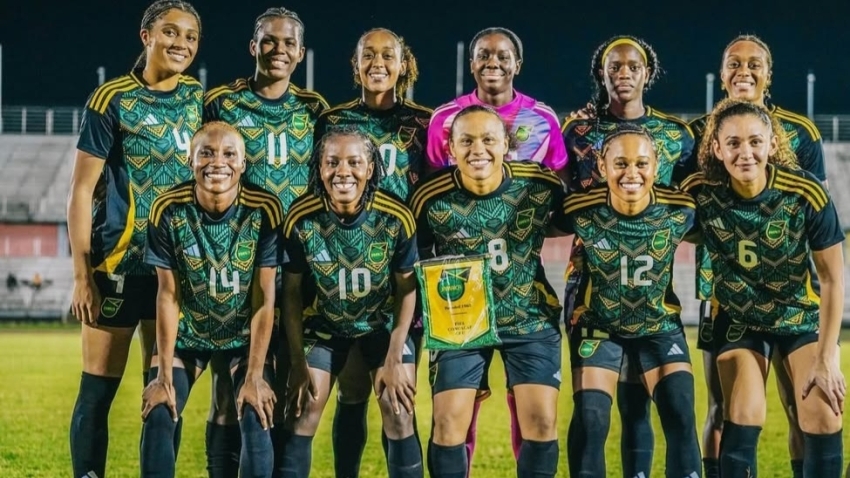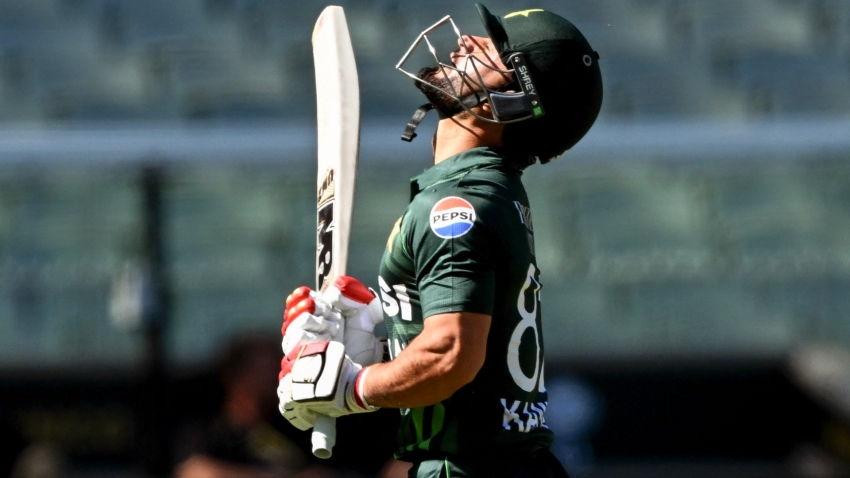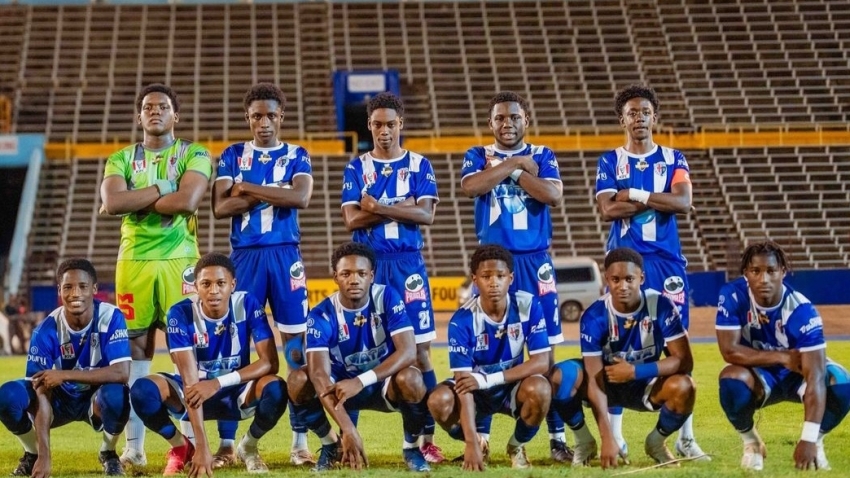The British art of understatement is an essential part of Henry Candy’s method.
“Quite nice”, “fairly pleasing” and “acceptable” are the Candy locutions for “over the moon”, while “rather disappointing” and “not quite what one had hoped for” mean “gutted”.
It is 40 years since the modest man with a wry sense of humour saddled Time Charter to victory in the King George VI And Queen Elizabeth Stakes, one of the most important all-aged races of the year.
The white-nosed lady with the short, purposeful, clockwork stride flashed her four bleached socks past all bar On The House when a staying on second in the 1000 Guineas of 1982.
And Candy had her spot on for the Oaks, despite being sent off a 12-1 chance under then-apprentice Billy Newnes, on account that her pedigree suggested she would not get a mile and a half.
“She was at her best in the spring of her three-year-old career probably,” Candy casually offered.
“The Oaks win was memorable. It was a job to know what her trip was, because she was by that extraordinary horse Saritamer.
“He didn’t stay at all. He was trained by Vincent O’Brien and I think he had other sprinters at the time, so he made Saritamer into a miler, but basically he was just a sprinter.”
It was easy to see why Candy had trip reservations, since the sire had won races like the Cork and Orrery (now the Queen Elizabeth II Jubilee Stakes), July Cup and the Diadem. Time Charter was the first foal of her dam Centrocon, a high-class racemare who won the Lancashire Oaks.
“It was an extraordinary pedigree and it took me a while to work out that a daughter of Saritamer could actually get a mile and a half very well,” he added.
The powerfully-built bay, owned by Robert Barnett, won the 13-runner Oaks by a length from Slightly Dangerous in a record time, quicker than Golden Fleece’s Derby success a few days earlier.
“That was probably the best she’d ever been on Oaks day, which was lucky,” chuckled Candy.
“She couldn’t quite manage to give the weight away in the Nassau before it became a Group One and then she won the Sun Chariot.”
It had been expected that Time Charter would be retired at the end of her Classic campaign, yet after her performance in the Champion Stakes, which was then run at Newmarket, it was decided she would race on.
Candy said: “Her Champion Stakes was a remarkable performance. It was very, very wet. If you see pictures of it, all you can see is umbrellas.
“Billy rode her that day and he was coming through and riding his usual sort of hold-up race, when he wiped out somebody, who I think was Greville Starkey on Kalaglow.
“You could see the bubble coming out of Billy’s head saying ‘I’d better win by a long way!’.
“He gave her a smack and rousted her along, and she won by seven lengths. It was incredible. Very, very impressive.”
Time Charter took time to come to hand in the cold, wet spring of 1983 and having missed the Coronation Cup, made her second start of her four-year-old season in the Eclipse.
Newnes gave her too much to do at Sandown when finishing sixth to Solford and he was keen to make amends three weeks later at Ascot.
He never managed it. Yet Newnes owes a huge debt to journalist and broadcaster Brough Scott.
The scribe was watching work with Candy one Thursday morning from their Stone Age burial mound vantage point high on the ancient Ridgeway at Kingstone Warren, some 10 miles west of Wantage, when the then-23-year-old suffered a near fatal fall.
It was supposed to be a routine gallop for juvenile Silver Venture and his rising star jockey, yet suddenly the colt staggered and somersaulted at a three-quarter gallop.
Candy said: “Billy had a quite a major fall. His life was saved by the mighty Brough Scott up on the gallops. Brough had come to look at Time Charter and she was doing a little bit. Billy was on another horse, a two-year-old. He was having a breeze and going very rapidly, but had a heart attack and hit the ground.
“Billy was unconscious. We were a long way from the yard. This was before mobile phones existed. So I said to Brough, ‘you stick with him’, and I shot back to the office and rang to get an ambulance. Brough, to his eternal credit, realised that Billy had swallowed his tongue. So, he hooked it out and saved him.”
Scott also had to resuscitate the rider, who suffered a broken collar bone and damaged ribs, with Newnes obviously sidelined for the Ascot race.
Joe Mercer, one of the most stylish riders Britain has ever seen, came in for the ride in the King George.
“Joe actually rang up for the ride – jockeys didn’t have agents in those days – and that suited, as we were delighted to have him. It was his first time riding her,” said Candy.
The 48-year-old rang Newnes the previous day to ask the younger man’s advice. ‘Just let her settle and she will do it when you want her to’ was the answer.
And that was how it looked to those in the stands. The early gallop was slow and Time Charter lay last at Swinley Bottom. Lester Piggott took Diamond Shoal to the front. Sun Princess, the 9-4 joint-favourite was close and looking dangerous when Mercer pulled out 5-1 shot Time Charter wide for what turned out to be the winning challenge.
It was Mercer’s first Group One winner for four years.
“She wanted holding up and she wanted to come late, which he duly did. He rode the perfect race on her,” added Candy.
“It was a wonderful race to win, as were all those other Group One all-aged races.”
And this was a time when the best took on the best in the name of sport.
Candy added: “Now they duck each other. It is all so commercial. People are terrified of getting their horses beaten.
“Whereas in the old days, we used to run them and hope they won. I think she was the first filly to win half a million quid, which was a lot of money in those days.”
She won the Prix Foy with Newnes aboard again and was sent of favourite for the 26-runner Prix de l’Arc de Triomphe, where she was a gallant fourth.
Time Charter’s start to her five-year-old season was disrupted by a hip injury, yet such is Candy’s mastery, he had her spot on for the Coronation Cup where Steve Cauthen’s ride was breathtaking. She travelled easily before sprinting away to a four-length success.
“She then should have been the first filly to win the Eclipse, but she got into a lot of trouble in running and got beaten a neck or something, by a very moderate horse called Sadler’s Wells,” teased Candy, tongue planted firmly in cheek.
After nine wins in a 20-race career, Time Charter became a highly successful broodmare and, having retired from the paddocks in 2001, died in her sleep at the age of 26 at Fair Winter Farm in Buckinghamshire in 2005.
“She was, I think, probably the best I’ve trained,” added Candy. “I’ve not had many horses who come close to her. She did a huge amount for us, she was a wonderful flag-bearer and she had quite a good following. I doubt I’ll have another one like her.”





